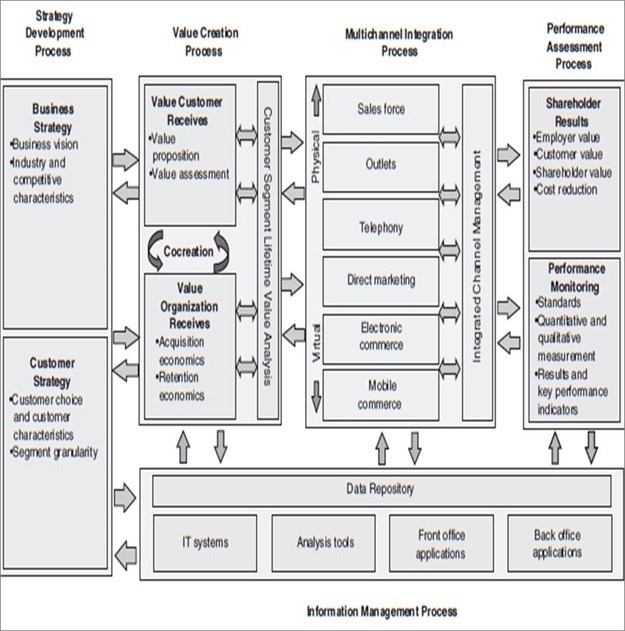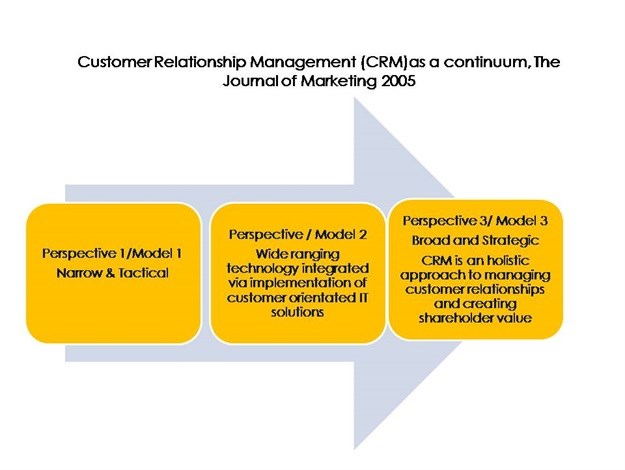Three basic principles to CRM success in the 21st century

Wendy van Schalkwyk, international business consultant said: “CRM is vital to organisations as it creates lifelong relationships with clients, extracting customer value from data integration to create business intelligence. It is multi-channelled and reorganises the business to focus on particular market segments and manage its customer relationships effectively with efficiency.”
Perry Norgarb, from SmallBizCRM, has been working with CRM software for over two decades. Norgarb stated: “The right CRM system can help a small business 'monetise' its site, but only if the right solution for a specific business is implemented.”
But how did a simple customer tracking tool become so important and how do companies avoid spending millions on CRM without it leading to failure?
Get the CRM definition right
Over the past 20 years the definition of CRM has changed significantly. Academic research confirms that hundreds of definitions exist and even marketing guru Kotler’s definition of CRM is different today from what is was 10 years ago. Today Kotler (2014) defines CRM as a process of carefully managing detailed information of individual customers and all customer touch points to maximise customer loyalty.
The lack of a clear definition of CRM will result in CRM being fragmented within the organisation and value being difficult to monitor or track.
Get the organisation involved
Successful CRM projects are implemented against the CRM objectives derived from the corporate objectives and support the overall business strategy.
Payne and Frow (2005) argue that successful implementation of CRM Programme depends upon four critical factors, which include: (1) CRM readiness assessment, (2) CRM change management, (3) CRM project management, and (4) employee engagement.
A CRM readiness assessment provides an overview audit, which helps management assess the overall position in terms of environmental readiness to progress with CRM implementation and to identify how well developed their organisation is relative to other companies.
The CRM change management process involves strategic decisions to be taken that will have an impact on company resources, time and costs, but if the right investment is made can have a significant return on investment.
Senior level understanding, support and leadership is critical in a complex CRM implementation project as it affects the company cross-functionally and reorganises the workflow operation and activities of the business. This requires key skills, but for smaller organisations the CRM systems can grow as the organisation grows as long as the right tool is invested in that allow for scalability.
Various arguments have been put forward for the failure of CRM systems. It is suggested that the main reason for CRM project failure is the lack of strategic planning prior to the implementation of CRM. According to Norgabr, the failure rate proves how important it is for a business to take the time to investigate CRM systems and to opt for the best fit for the individual business.
Get the CRM model right
Grabner-Kraeuter and Moedritscher (2002) advocates that without a strategic framework or model for CRM, it is difficult for CRM to define its success and is one of the reasons CRM initiatives fail.
While various models exists and continue to emerge, CRM must be tailored to its respective business needs for real value to be created.
Winer (2001, p.91) identified a seven-step model for customer relationship management. This included:
• A database of customer activity;
• Analyses of the database;
• Given the analyses decisions about which customers to target;
• Tools for targeting the customers;
• How to build relationships with the targetted customers;
• Privacy issues; and
• Metrics for measuring the success of the CRM programme.
Then the Journal of Marketing Management (2005) defines CRM into three perspectives:
• Narrowly and tactically as a particular technology solution – Perspective 1;
• Wide-ranging technology – Perspective 2; and
• Customer-centric - Perspective 3.

The Journal of Management, 2005
Payne and Frow’s CRM model (2005, Vol.69. p.169-176) shows CRM’s detailed complexity and holistic nature of creating shareholder value, but this model also illustrates the reality of just how much work, energy and resources CRM can consume when done at an organisational level.

The Payne and Frow’s CRM Model, 2005
The Payne perspective of CRM highlights the interactive set of strategic processes that commences with a review of an organisation’s strategy and concludes with an improvement in business results and increased shareholder value.
This model affirms that competitive advantage stems from the creation of value for the customer and for the business and associated co-creation activities.
Kale (2004) further supported this view and argued that a critical aspect of CRM involved identifying all the strategic processes that take place between an enterprise and its customers.
Fundamental to this concept of customer value are two key elements of research, which include determining how existing and potential customer profitability varies across different customers and customer segments and then determining the economics of customer acquisition and customer retention and opportunities for cross-selling, up-selling, and the building of customer advocacy.
How these elements contribute to increasing customer lifetime value is integral to value creation and the customer retention process represents a significant part of the research for value creation to emerge.
Van Schalkwyk adds that is important to keep in mind that organisational CRM is continuous as it is being affected in real time by global market forces as data and information flows across the world, given globalisation, new knowledge is being created and creativity for innovators emerges informing new trends and spurring innovation. These factors have a direct impact on a company’s existing products and service lines, as this directly influences customer buying patterns and habits. Therefore, taking the time to invest in the right CRM system in order to understand and develop customer relationships more effectively is essential for business sustainability into the future. The lack of an effective and up-to-date CRM system makes businesses ineffective and inefficient as companies become out of touch and irrelevant to their customers ever changing needs and desires.
Van Schalkwyk concluded: “There is no single solution to CRM. Quite often organisations think they know what it is and when they bring in experts to the table to do the gap analysis assessment it becomes clear they don’t understand the function, definition and value of CRM in the 21st century of business. We then have to work together with the company to select the most appropriate model. Interestingly, what is driving CRM is the need for customer-centricity and creating ongoing value and relevance in the market. What is fundamental is that CRM is all about the customer, not the organisation. CRM is all about what the customer wants and how he wants his needs to be met. The customer wants to be understood better and needs the CRM system to provide insights to his needs so that the organisation can be responsive and present him with the right offering at the right time.”
Perry Norgarb agrees with this statement and, therefore, his company, SmallBizCRM, has created a CRM finder tool that will aid the process of choosing the most appropriate CRM system. This is achieved through two sets of questionnaires that guide a small business through the necessary thought process and questions and, ultimately, narrows it down to five CRM solutions. Norgarb adds that choosing the right CRM can make a tremendous difference to a business, “There’s nothing more rewarding than a client thanking you for revolutionising his business.”


























